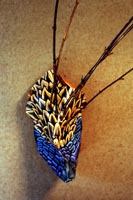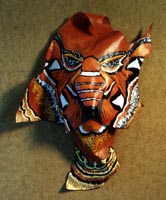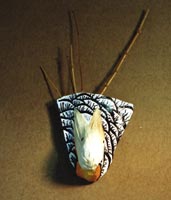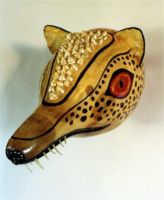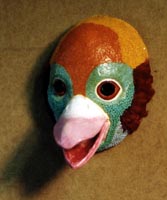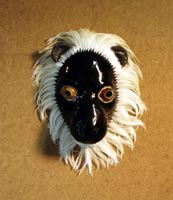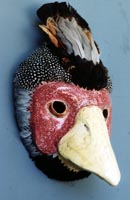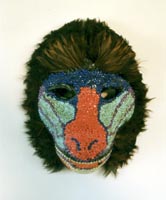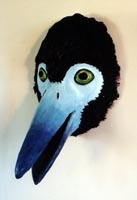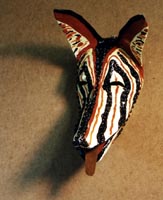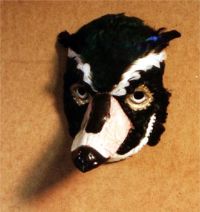Art Gallery
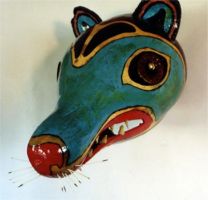
|
Artist's Statement
October 2002 Mask Exhibit
Barnes & Noble Booksellers
Bakersfield, California 93309
Anyone who has ever worn a mask knows that masks are revelatory devices: their purpose is to reveal rather than disguise. When we don them we drop the well-developed "mask" of our everyday persona and safely allow ourselves to reveal and become "something else."
As is it is for the mask-wearer, so it is for the mask-maker. In most of my other artwork -- paintings, pastels, and sculptures -- I generally adhere to obsessively executed pieces rendered in an almost relentlessly consistent style. But when I "don" the mask of maskmaker I feel freed to break out into new materials, styles, and techniques that aren't necessarily recognizable as "my" work -- I become free of the burden of myself, free of the artist's usual mandate to produce a coherent "series."
This particular exhibit encompasses pieces made from many different materials in a variety of different styles and techniques, inspired by different cultures, different concepts I've been playing with, different emotional, intellectual, and technical concerns.
The one "theme" that ties these pieces together (with two exceptions) is the natural world. The subject matter often utilizes animal imagery -- some masks are "portraits" of animals, others are abstract pieces that use patterns from nature, and a few are of animals "masked" with the patterns of other animals. Other masks were opportunities for me to explore working with gathered natural materials.
The two exceptions to this rather broad and vague theme are Primary Devil and Secondary Devil, which are playful renditions of basic color concepts. A third piece, Complementary Devil, which would complete this set, is still in process.
The three Native American inspired pieces (Old Broken Nose, He Who Wanders At Large, and The Great Northwestern Rat Goddess) are somewhat autobiographical in reference:
I'm of slight Seneca ancestry (my father said that his mother was of the least amount of bloodline that could still claim a bolt of calico a year from New York under the old treaties). I never had an opportunity to grow up with that part of my heritage, but have always been fascinated by it. Old Broken Nose and He Who Wanders At Large are contemporized random basketry versions of Iroquois Nation masks traditionally carved out of basswood.
As a child I attended Saturday children's classes at the Portland Art Museum art college for several years. One of the benefits was the opportunity to study and sketch pieces from the museum's outstanding Northwest Indian art collection. The Great Northwestern Rat Goddess references that period of my childhood.
— Michaela Roessner —
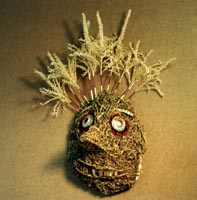
|
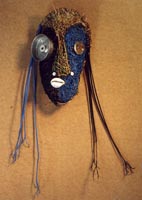
|
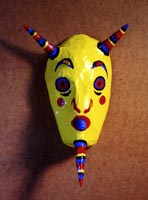
|
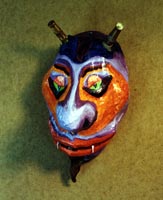
|
